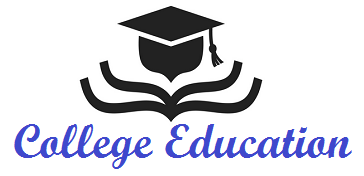In education, in recent decades, controls have had a bad press and seemed archaic. They partially disappeared or became very discreet. It was then that evaluation, especially qualitative, took off considerably.
2 .Thirty years later, a page turns. The important development of the evaluation, its variety and its omnipresence contribute today to tarnish its luster and to grant gradually to the controls a new and more and more important place. It is as if, after the development of evaluation practices, we are currently witnessing a return to controls in modernized forms, due to new issues.
3 .We have chosen to study this question in England, Chile, China, France, Poland, Switzerland and the Basque Country, seven educational systems that differ in their geographical location, political heritage, organization and experience. in assessment and control. Two European comparisons complete this panorama.
A new context
4 .Education systems have been going through a period of repeated turbulence for more than thirty years. It’s a strong trend. We see an increase in the number of stakeholders, local, national and international, as well as the influence of various networks and, even more recently, of international standards. Education must be part of logics of regulations, of increasingly strong requirements on the results and the performances. Users are concerned about the quality of the services provided and citizens, like taxpayers, are vigilant about efficiency, concerned about the costs of the education system and their children’s studies. They thus express the value they place on the School, what they expect from it. For these reasons, they want to be more and more part of it. Information alone is no longer enough for them. In short,new public management , education systems have penetrated, without necessarily having sought it, the register of governance.
5 .It is clear that the confidence that civil society and political circles have in the professionalism of teachers is cracking. The School suffered sometimes strong criticism, as in Poland. The succession of reforms increases general skepticism and the public doubts that the expected results are really achieved, even when the school authorities send reassuring messages. The School’s partners and its users look more and more closely at the results of evaluations, especially international ones. They ask, on this register too, to become a stakeholder. They invoke the need for a return to local control informed by comparisons.
6 .Developments in education systems are also due to the consequences of political changes, there towards more decentralization, here towards attempts at recentralisation (as in Switzerland, which may come as a surprise), often with deconcentration measures which in fact resemble a decentralization of centralization. Moreover, the different levels commit public money and must account for it, to a point that goes beyond anything that had been practiced until then. In many countries, it is Parliament that has passed specific laws to this effect, such as the LAP in Quebec or the LOLF in France.
7 .These requirements lead to the multiplication of assessments and controls. They are becoming more and more public, the example coming from international surveys of which the media and elected officials are fond. The general public too now; teachers much less. There are more and more countries where these surveys, such as PISA, have a rapid, visible impact with identifiable effects. Matthis Behrens, for Switzerland, talks about what he calls “the PISA shock wave”.
8 .Local, political and administrative authorities also want to have information enabling them to report to their constituents, be it their guardianship or their voters, but also civil society, especially where communities are organized and influential, as in England. The proximity between “operators” (teachers, schools) and their managers (elected officials, administration) leads to going beyond traditional evaluations and supplementing them with new control mechanisms.
International assessment at the heart of decision-making processes
9 .While some countries, such as France, refused for several decades to concern themselves with the results of international surveys when they were not those expected and desired, today the majority of “decision makers” take them into account in almost all country. In France too, recently. They have become obligatory references.
10 .In Chile, Switzerland or Germany, they are at the heart of the reforms and are taken as objectives in terms of improving the school system. This poses new problems, as the article on Switzerland shows. In England, they are the source of corrections and changes to devices that are difficult to describe and, no doubt, to control. In China, in Poland, in the Basque Country, they are a priority in the declared concern to want to improve the quality of the School. In France, knowing the greed of the media, elected officials and parents for this data, the ministers now evoke them to support their reforms.
Originally, diversified assessments
11 .The development of evaluation within education systems has led to the formulation of generally accepted distinctions, for example between external evaluations and internal evaluations (self-evaluations). Here, evaluation is seen as energizing the system; there, it has rather a negative connotation, expressing the fear of future constraints, even of harmful consequences. On the other hand, ambiguities remain on what is called supervision, inspection and control.
12 .The evaluation can be experienced as more or less constraining. In some countries, it is an annual and public obligation for schools. In others, it is the responsibility of specialized bodies, inspections or agencies. Thirty years ago, assessments gradually replaced control over procedures (schedules, programs, way of teaching, etc.) to become an important element of regulation and decision support, and therefore of management. What diversity and ambiguity!
13 .We can legitimately consider that evaluation has contributed to improving education systems, in terms of quality and efficiency, by pushing actors and institutions to assume greater responsibility. It has become a constituent element of public policies centered on performance. But the general evolution seems to go, again, towards a much mre considerable role of the control mechanisms, centered on the results.
14 .Comparing has become an issue of primary importance. The evaluation practiced by a country depends first of all on the political organization of the State and the degree of decentralization that it practices, whether it is political in the direction of elected local authorities, or whether it is functional, that is to say entrusted to autonomous educational establishments. The articles by Wang Xiaohui (China), Josu Sierra (Basque Country), Leonor Cariola and Lorena Meckes (Chile) or Jolanda Zając (Poland) show this, as well as those by Ferry de Rijcke on inspection in Europe, or even that by Nathalie Mons.
15 .The evaluation also depends on the dominant culture. Thus Josu Sierra recalls that the Basque Country recognizes that it has no culture of results, while England and Chile have a long practice in this area. China and Poland today are gradually moving in this direction.
16 .We perceive hesitations on the chosen target: to evaluate what, who and to draw what consequences? Should it be done in relation to national objectives (as in France), or even international (as in Switzerland), or in a logic of assistance in the management of the establishment, as described by Leonor Cariola and Lorena Meckes for Chile ? Should sample surveys be preferred or should generalized tests be carried out for all pupils of a given school level or of a given age? There is therefore a great disparity between countries and within the countries themselves, especially when it comes to federal states, as in Spain.
17 .Institution-oriented evaluation may, in some cases, want to contribute to helping them manage their project. In others, it is a way of increasing competition between them and thus intensifying a logic of “school market”, as in England, for example. According to the intentions, its appropriation by the actors of the establishments is not the same.





